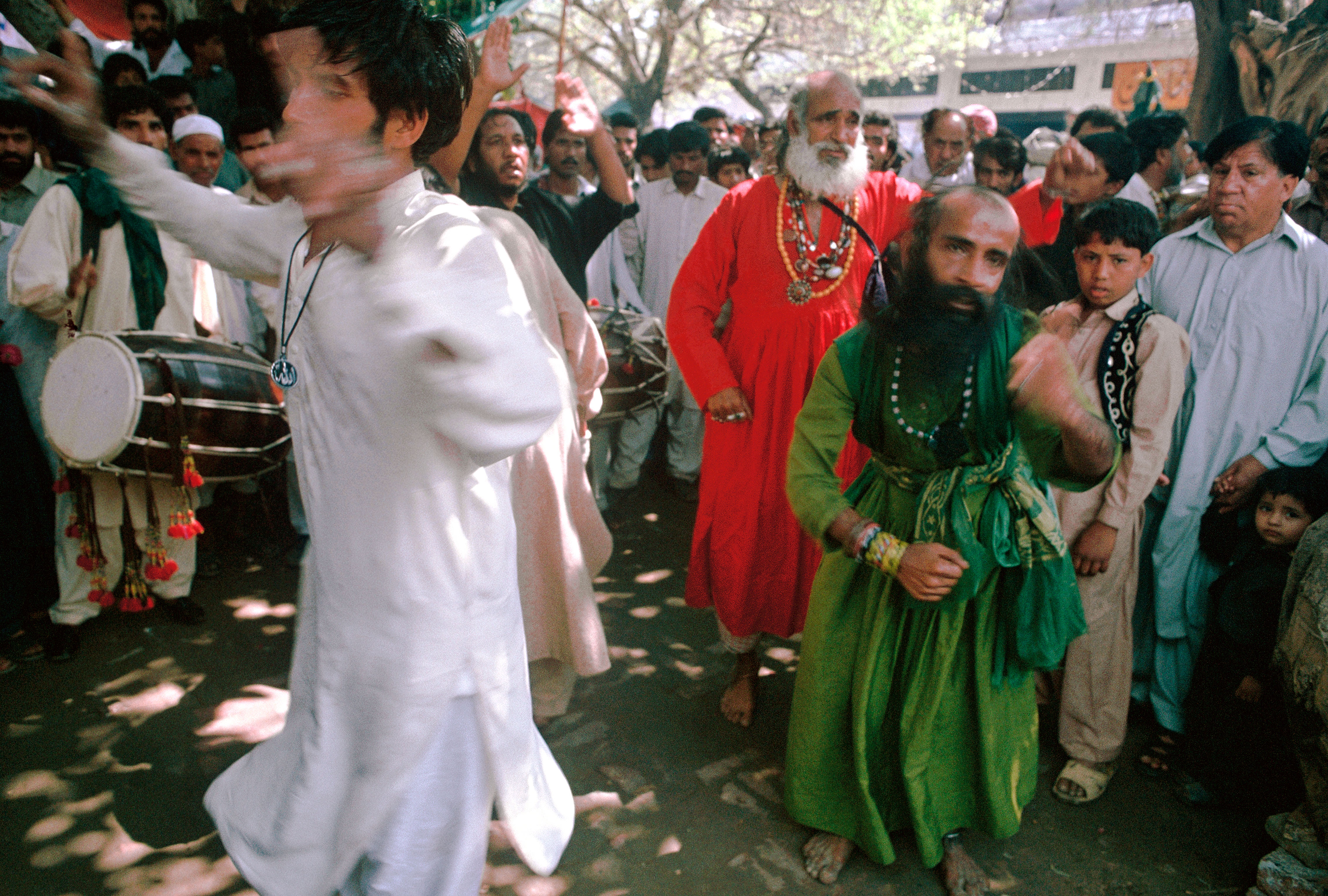This is an unusual story, amusing perhaps but essentially true. It may make you laugh. It may make you think.
One of my specialisations, during my lecturing years in India, was comparative religion, especially dialogue between Christians and Muslims. In that context I visited, in the 1970’s, the city of Ranchi on the banks of the river Ganges. I travelled there to attend a three-day symposium between Christian and Muslim scholars.
At the end of one of the afternoon sessions, one of the Muslims invited me to come and visit a famous Sufi Master. I have forgotten his name. We took a rickshaw to the Islamic Institute where he was teaching. We were admitted to a waiting room, and then to the carpet studded studio where the Master received us, sitting cross-legged on a sofa.
Let me explain first about Sufis. They are a strand of Muslims who prefer a mystical approach to God. They reject the concept of a Super Manager God sitting high up in the sky, deciding whether to send us rain or sunshine, to inflict a car accident on us or not. As a Catholic theologian I fully agree with them on that point. God is rather the deeper dimension underlying all reality, and revealing the divine presence in each one of us. (Visit my website www.mysteryandbeyond.org.)
The Sufi Al-Ghazali (1058-1111) expressed this beautifully in his booklet Mishkat al-Anwar, “The Niche for Lamps”. Allah is not far away, he says. “We can see things with our-ordinary, physical eyes because of light. Actually, we do not see those things themselves, but we see the light that comes from the sun and that is reflected from those things. The same applies to our seeing on a deeper level. Everything that exists, exists because of the light of being that comes from Allah. When we look at things on the level of reality and being, we are actually seeing ‘the face of Allah’.
Sufi tools for thinking
To make our mind dig deeper, the Sufis developed various devices, such as parables. Let me give you some shortened examples.
In a country swarming with sects, a small bag of tea was carried in procession before the people as they went on their religious observances. Nobody thought of tasting it: indeed nobody knew how. All were convinced the tea itself had a magical quality. A wise man said: “Pour upon it boiling water, ye ignorant ones!” They hanged him and nailed him up, because to do this, according to their belief, would mean the destruction of their tea.
A drop of rain fell from a cloud. Looking down at the ocean it said: “Who am I compared to this vast expanse of water?” A clam, touched by the raindrop’s humility, opened its shell and received the drop inside; which turned into a pearl.
A poor donkey had been patiently carrying a heavy load all day. Finally, his owner reached his destination, and the donkey was relieved of the merchandise heaped on his back. Free at last from his burden, the beast happily emptied his full bladder. A short distance away, a tiny fly was resting on a leaf lying on the ground. The donkey’s urine, flowing downstream, began to carry the leaf with the fly on it. The fly was initially taken aback, not quite understanding what was happening. After a little while, though, she began to believe: “I’m sailing away on the sea. God has made me the captain of this ship, and what a perfectly seasoned navigator I am! Who dares to stop me now?”
Sufis also present puzzles – and this brings me back to my encounter with the Sufi Master.
My Muslim friend introduced me saying that I was a Christian looking for wisdom. Did the Master have a word of advice for me?
He looked at me, closed his eyes, then opened them again and asked: “Did you ever play cricket?”
“Yes, I did”, I replied. As you know, Indians love cricket and are good at it.
“So, you recognise what the bowler throws at you when you are batting?” he asked again.
“Of course . . ,” I said, wondering what he meant.
Then, leaning forward and staring me in the eyes, he asserted: “You have two of them between your legs!”
With that he gestured that the meeting was over.
When we came outside, I turned to my Muslim friend. “Was that a joke?” I asked.
“No, no! Certainly not. He wants us to think about it. I don’t know what he meant . . . Perhaps he tells us not to seek wisdom from others, but to find it in ourselves . . .” And then he quoted a saying from Jalal ad-Din Rumi (1207-1273), which I will render in shortened form.
Where did I find God?
In a Hindu temple? – no!
In a Christian church? – no!
In a mosque? – no!
In the Kaabah of Mecca? – no!
Finally, I looked into my own heart. It was there, in God’s own place, that I saw God.
It reminded me of Christ’s promise: “The world cannot accept my Spirit, because it neither sees nor knows my Spirit. But you will know my Spirit, for my Spirit lives with you and in you.” (John 14,17)
Or simply: “God is love. The person who lives full of love lives full of God for it is God who fills that person.” (1 John 4,16)



 Loading ...
Loading ...
What do you think?
You can post as a subscriber user ...
User comments (0)